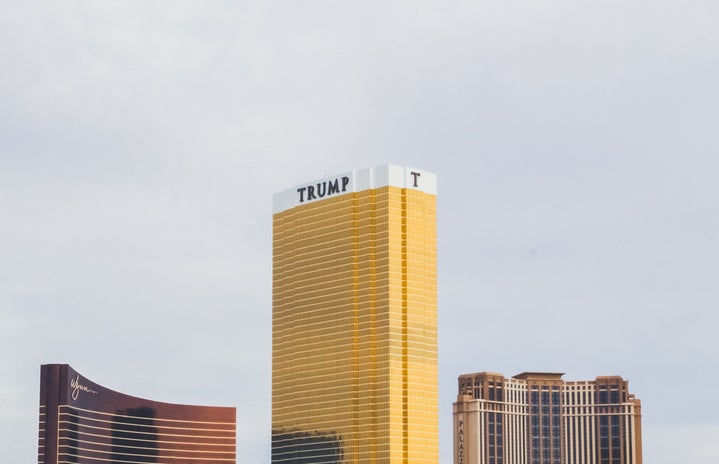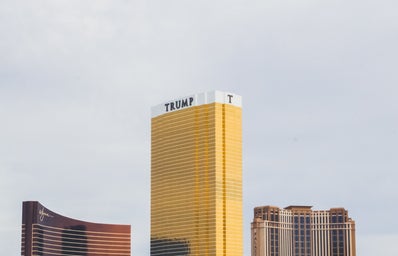On Feb. 5, Donald Trump delivered the State of the Union address in his third year as president. The State of the Union itself is a yearly speech given by the President to the Democrats and Republicans of Congress to present the agenda and goals of the government. The address was initially going to be held on Jan. 29, but due to the recent government shutdown Speaker Nancy Pelosi and President Donald Trump chose Feb. 5 as their final date. As key focuses of his agenda, President Trump discussed international dealings, a call for bipartisanism and a denouncement of socialism.
Trump’s international dealings, regarding peace, trade and immigration, have been hot topics since he was making rounds on the campaign trail. Trump announced that he will be attending a two-day summit in Vietnam from Feb. 27-28 with North Korean leader, Kim Jong-un. “As part of a bold new diplomacy, we continue our historic push for peace on the Korean Peninsula,” stated the president in his address. Moving along to trade, Trump announced a deadline of March 1 for China and the United States to reach an agreement to “end unfair trade practices, reduce our chronic trade deficit, and protect American jobs.”. Donald Trump has stated that he is intent on reducing the tariffs previously imposed on $200 billion of Chinese goods, which are also set to double soon. Trump, quoted in his speech by The Standard UK: “We are now making it clear to China that after years of targeting our industries, and stealing our intellectual property, the theft of American jobs and wealth has come to an end.”
Shifting gears into immigration, more specifically his infamous border wall, President Trump defended the country’s need for a border wall without declaring a state of national emergency. A state of national emergency was threatened by the Trump administration as recently as a week before the address as a means to bypass bipartisan cooperation and secure the $5.7 billion needed to construct Trump’s wall. In a “state of national emergency,” the Democrats’ approval for the funding of the wall would then become obsolete. Instead, Trump continued his defense and promise of the wall without enacting more drastic measures.
Regarding bipartisan cooperation, President Trump promoted the future agreement of both Democrats and Republicans. Trump opened his speech: “Millions of our fellow citizens are watching us now, gathered in this great chamber, hoping that we will govern not as two parties but as one nation…the agenda I will lay out this evening is not a Republican agenda or a Democrat agenda. It is the agenda of the American people.”
While extending this declaration of peace between the two parties, Trump also made some statements regarding the current “partisan investigation” against him brought by Democrats. “If there is going to be peace and legislation, there cannot be war and investigation,” stated by Trump in his address, reported by CNN. Trump continued: “An economic miracle is taking place in the United States, and the only thing that can stop it are foolish wars, politics or ridiculous partisan investigations,” as quoted by Newsweek. The central message is that if the country wants to continue on the path to prosperity, then Robert Mueller’s investigation into Trump and his administration must cease. House Speaker Nancy Pelosi later responded:
“Tonight, the president spoke about the honor of being in the House Chamber, and all the progress that has been achieved here….but at the same time, he threatened the United States Congress not to exercise its constitutional responsibility of oversight.”
Finally, with the election of 2020 looming, Trump addressed the rise and interest regarding the ideals of socialism in our country. “Here, in the United States, we are alarmed by new calls to adopt socialism in our country…tonight, we renew our resolve that America will never be a socialist country,” stated Trump. This statement was at first thought to be aimed at the turmoil currently transpiring in Venezuela, as Trump publicly denounced their current president, Nicolas Maduro, while in turn endorsing his opponent, Juan Guaido. Instead, his statements were turned inward towards our country’s own Democratic party and more specifically the possible Democratic candidates of 2020. This statement against socialism is essentially a stand against the Democratic ideals of socialized education and healthcare. As Trump plans on running for reelection in 2020, these are some of the core ideas he’ll be up against when facing a nominee from the Democratic Party.
For further information, Trump’s State of the Union also touched on issues of solving the HIV/AIDS epidemic, withdrawal of troops from Syria and the increased abortion access recently granted by lawmakers of New York.



